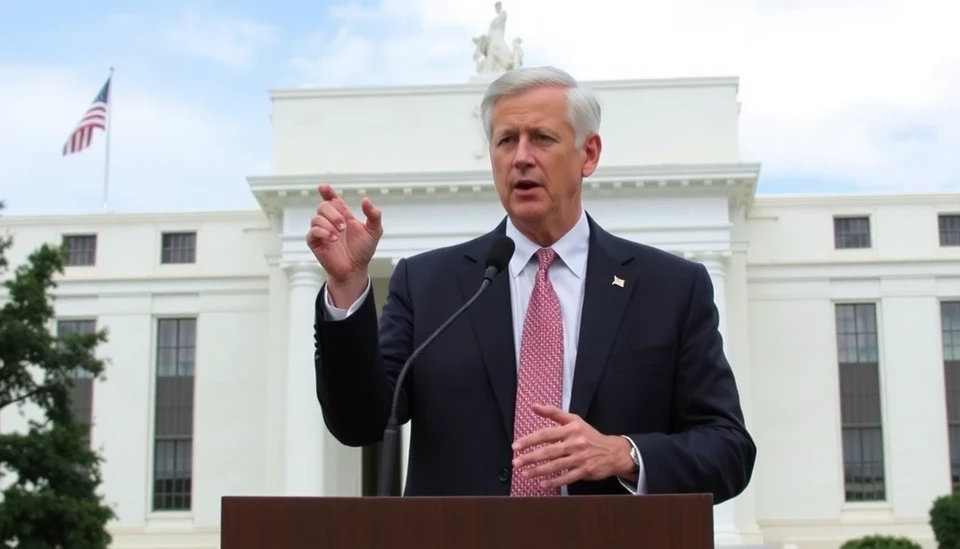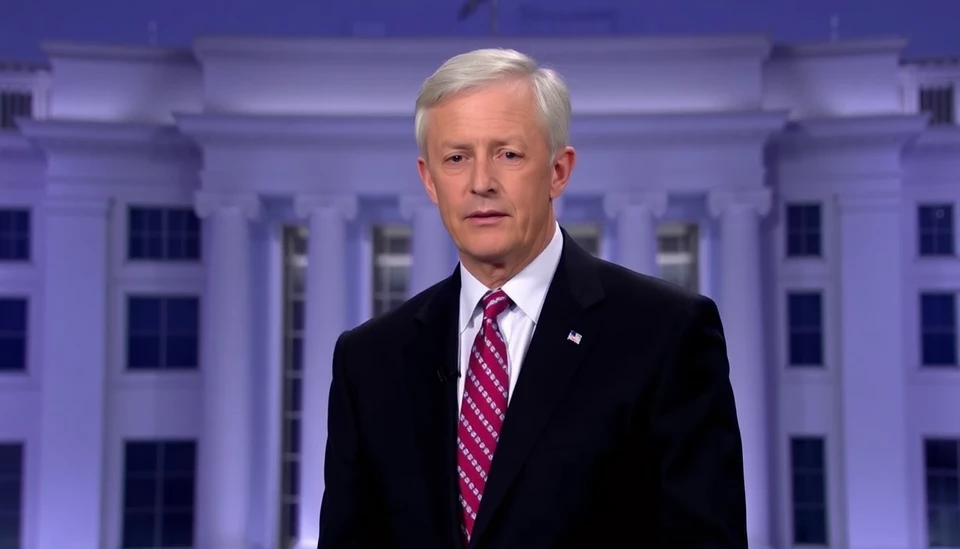
In a significant turn of events, Federal Reserve Chairman Jerome Powell finds himself navigating a precarious political landscape as former President Donald Trump’s recent remarks threaten to undermine the longstanding autonomy of the Federal Reserve. This dynamic is intensifying as Trump ramps up his rhetoric while preparing for his possible return to the White House.
During a recent public address, Trump vocally criticized the Fed’s monetary policy decisions, which he claims have adversely affected the economic recovery. This critique is not just a personal attack on Powell but a broader commentary on the Fed's role and strategies during turbulent economic times, reflecting a growing concern among some politicians regarding the central bank's independence from political influence.
Powell, who has been at the helm of the Fed during a period marked by unprecedented economic challenges, now must address these pressures while simultaneously maintaining the central bank's credibility and its commitment to monetary policy free from political interference. This balancing act is increasingly difficult as Trump, eyeing a presidential bid in the next election, attempts to position himself as a staunch critic of the Fed's policies.
The former president has characterized the Fed's interest rate hikes as detrimental to small businesses and everyday Americans, suggesting that these measures have led to increased loan costs and higher inflation rates. Trump's claims have echoed among certain Republican circles, causing alarm within the Fed, which prides itself on its independence and evidence-based decision-making approaches.
In response, Powell has reiterated the importance of the Fed's role in stabilizing the economy, emphasizing that decisions are based on economic data rather than political pressure. Leaders within the Fed, including Powell, are advocating for transparency in their operations and decision-making processes to reassure the public and lawmakers alike that they are acting in the best interest of the American economy.
The situation is further complicated by the upcoming presidential election, where monetary policy will likely be a focal point of debate. Candidates from both parties are expected to weigh in on the Fed’s actions, potentially increasing the scrutiny on Powell and his colleagues. Analysts speculate that if Trump is successful in his pursuit of the presidency, he might attempt to exert even more influence over the Fed, posing challenges to its core mandate of controlling inflation and ensuring economic stability.
As Powell navigates these multifaceted challenges, the stakes for the Fed and the broader U.S. economy remain high. Market reactions to political statements and partisan critiques highlight the fragility of public trust in independent institutions. Investors and economists alike are monitoring this evolving situation closely, aware that the Fed's mission could be hampered by rising political tensions.
In conclusion, the Federal Reserve's autonomy is under scrutiny as Trump challenges its policies ahead of a potential second run for the presidency. Powell's ability to uphold the integrity of the Fed while managing these pressures will be crucial in the months to come, especially as the U.S. economy continues to seek stability in a volatile political environment.
#FederalReserve #JeromePowell #DonaldTrump #Economy #MonetaryPolicy #PoliticalPressure #FiscalIndependence
Author: Laura Mitchell




